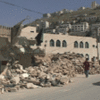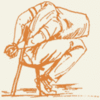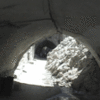BBC Transcript of "Israel's Secret Weapon" (part 1)
29 June 2003
Israel declared over the weekend that it is cutting off ties with the BBC to protest a repeat broadcast of a documentary about non-conventional weapons said to be in Israel. The program was broadcast for the first time in March in Britain, and was rerun Saturday on a BBC channel that is aired all over the world. The boycott decision was made by Israel’s public relations forum, made up of representatives from the Prime Minister’s Office, the Foreign Ministry and the Government Press Office. It was decided that government offices won’t assist BBC producers and reporters, that Israeli officials will not give interviews to the British network, and that the Government Press Office will make it difficult for BBC employees to get press cards and work visas in Israel. Before the broadcast Saturday, Israeli officials tried to pressure the BBC to cancel the broadcast, saying that the program was biased and presented Israel as an evil dictatorship. Here is a complete transcript of the program. Read more about BBC Transcript of "Israel's Secret Weapon" (part 1)





